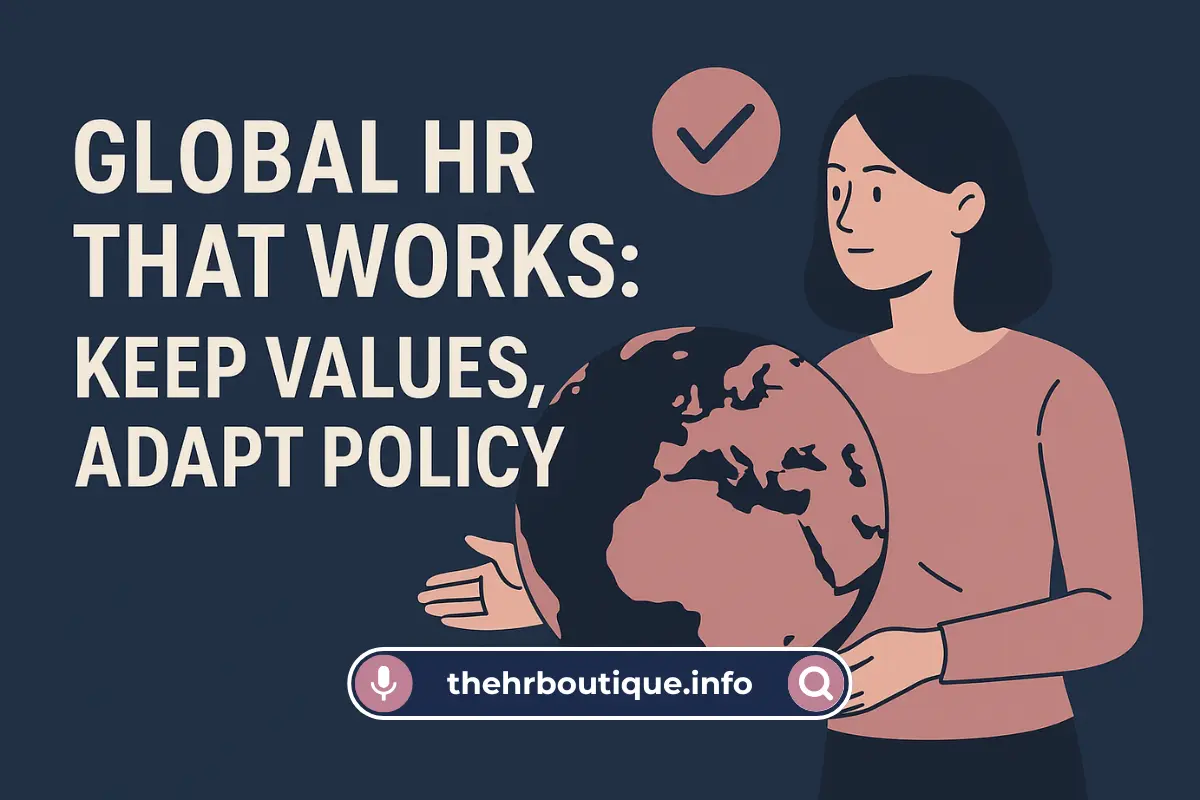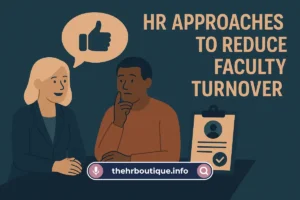I’ll never forget the look on my Japanese colleague’s face when our American CEO proudly announced we’d be implementing a “radical transparency” policy across all offices. In Tokyo, where saving face is deeply ingrained in business culture, the idea of public feedback sessions made our local team physically uncomfortable. That was my wake-up call – HR policies can’t just be copy-pasted across borders.
Why This Matters More Than You Realize?
Let me share something you won’t hear from consultants: Most global HR policies fail because they’re created by people who’ve never worked in the locations they’re writing for. I’ve seen:
- A German company lost its entire Mexican sales team over rigid working hours.
- An American startup nearly got sued in France for misclassifying contractors.
- A “fun” team-building exercise in Dubai that accidentally offended half the staff.
The truth? Getting this wrong costs way more than just hurt feelings. We’re talking:
- Sky-high turnover in new markets.
- Productivity nosedives.
- Legal nightmares that keep you up at 3 AM.
The Golden Rule of Global HR
Here’s what 12 years in international HR has taught me: Your values are sacred, but your policies shouldn’t be.
Take “work-life balance.” It’s non-negotiable for us. But how it looks:
- In Spain: Long midday breaks for family meals.
- In Singapore: Flexible hours to beat the rush hour.
- In Sweden: Strict boundaries on after-hours emails.
Same value. Different expressions.
Your Battle-Tested Localization Playbook
1. Find Your Cultural Ambassadors
Forget expensive consultants. The real experts are:
- Your first local hires (especially those who’ve worked for international companies).
- Office managers who understand both corporate and local expectations.
- That one employee everyone goes to for “how things really work here”.
Pro tip: Buy them lunch and ask: “If we implemented [policy] exactly like at HQ, what would blow up in our faces?”
2. The Policy Remix Framework
Here’s how I adapt policies without losing our core:
| Original Policy | Local Reality | Adapted Version |
| Unlimited PTO (US) | Mandatory 20+ days in EU | “20 days guaranteed + unlimited wellness days” |
| Flat hierarchy | Respect for titles in Asia | “Optional honorifics + merit-based advancement” |
| Direct feedback | Face-saving cultures | “Written feedback first, then 1:1 discussion” |
3. Pilot Everything (Like Your Business Depends On It)
We now test all new policies as 3-month “experiments” with:
- Clear success metrics.
- Scheduled feedback sessions.
- An easy opt-out if it’s not working.
This approach saved us in Brazil when we realized our “casual dress code” was being misinterpreted as “sloppy.”
Cultural Tripwires You Can’t Afford to Miss
- In Germany: That 5:01 PM email will earn you side-eye for weeks.
- In Brazil: Skipping small talk is like starting a meeting with “I hate you all”.
- In Saudi Arabia: Mixing genders in team-building activities requires careful planning.
The pattern? Assumptions are career-limiting moves in global HR.
When to Stand Firm (And When to Walk Away)?
Some values aren’t up for negotiation. When a potential partner asked if we’d relax our LGBTQ+ policies for certain markets, my answer was simple: “Then we’re not the right partner for you.”
But there’s a difference between compromising values and adjusting implementation. We kept our diversity commitment while:
- Focusing on merit-based hiring in regions where identity politics are sensitive.
- Creating local employee resource groups instead of forcing global ones.
- Adapting our language while keeping the substance.
The Ultimate Gut Check
Before rolling out any localized policy, I ask my team:
- Would this feel natural to [local team member’s name]?
- Could they explain it to their family over dinner?
- Does it still give you that “our company” feeling?
If we hesitate on any, we go back to the drawing board.
Final Thoughts
The companies that nail global HR treat it like a marriage – it requires:
- Constant communication.
- Willingness to adapt (without losing yourself).
- Clear boundaries on what you’ll never change.
That Japanese office story? We kept our transparency value but switched to written feedback with optional in-person discussions. Two years later, they had the highest engagement scores in the company.
Because here’s the secret no one tells you: Employees don’t expect you to be perfect. They just need to know you’re trying to get it right.
Now I’m curious: What’s the most unexpected culture-policy clash you’ve faced? (I’ll go first: The time we learned “team dinner at 7 PM” meant completely different things in Madrid versus Munich…)





